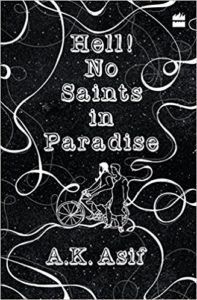We are at a tipping point,” said Rohit Chopra, one of the conference organizers and a professor of communication at Santa Clara University. He said the issue went beyond the conference. “It’s about the principles of freedom of expression, academic freedom and of a university being a space where people can speak for the most vulnerable.”
The online conference, Dismantling Global Hindutva, included panels on the hierarchical caste system, Islamophobia and differences between Hinduism the religion and Hindutva the majoritarian ideology. The event was co-sponsored by departments of more than 40 American universities, including Harvard and Columbia.
The whole piece is a mishmash. First, let’s stipulate that many Hindu activists are unsophisticated, illiberal, and nasty pieces of work. But someone like Suhag Sukhkla is none of those things. So the article focuses more on the former than the latter because the former is sensationalistic. Yet, many of the reported threats are credible to me because I myself have received various forms of these invectives from 15-year-old masturbaters in India on Twitter (though a little surprised adults behave like this too). But beneath the bluster and thuggishness, there’s a legitimate grievance. Imagine an academic conference on Islam that spotlighted its hierarchical gender system, religious dominionism, and the differences between Islam as a culture and Islam as a religion. Such a conference wouldn’t happen because academics would fear Muslim outrage and violence, and, they see Muslims as subalterns and marginal, and so above criticism.
The first issue illustrates why many Indians and Hindus are behaving like this: they’ve seen the heckler’s veto work on weak-spined academics before. They’ve seen it work for Muslims, and they’ve seen it work for left-wing activists. When Charles Murray was physically attacked at Middlebury it got results. Murray really can’t speak in public anymore at such venues because the cost of security would be prohibitive. The second issue is that academics don’t really believe in freedom of expression anymore, they believe in critiquing the powerful. They’re activists. Ideologues. What the Hindus are doing is turning the master’s tools against the master when they leverage identity politics and their status as people of color. The academics, who don’t really believe in freedom of expression, respond with most gusto when they try and smear Hindus by connecting them with Nazism and argue for their hegemonic status vis-a-vis Muslims in the subcontinent. It’s all who/whom here.
I believe in dispassionate analysis and Epoche. Many Hindu activists and believers are wrong on many things. And I tell them so when I think this. But I don’t do this because I want to “deconstruct Hinduism.” I don’t really care that much about Hinduism, or Islam, or any religion. I want to know what’s true. When humanities scholars gave up on the truth, they gave up on the high ground from which they could defend their viewpoints as part of free speech. This is the world they created. You told people that truth is subordinate is power. Your enemies now seek power to force you to speak their truth.
